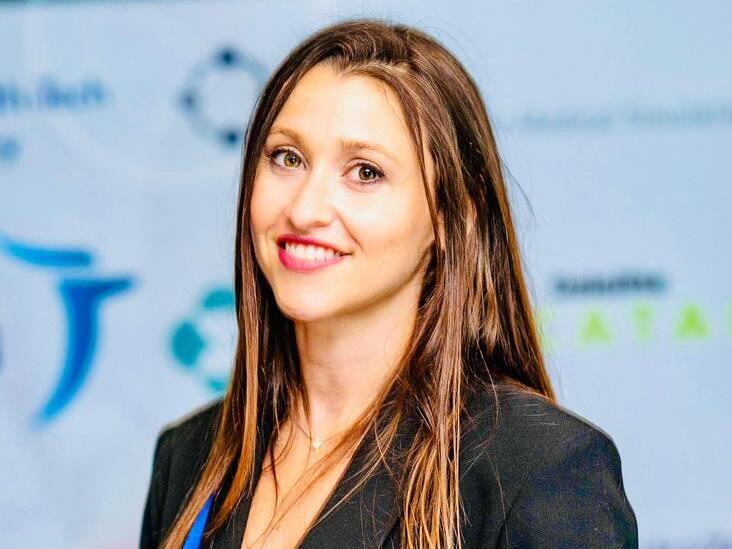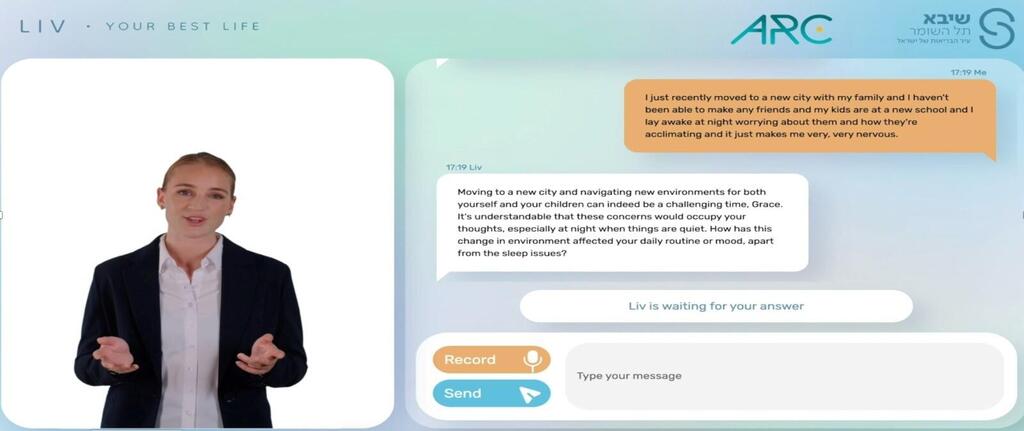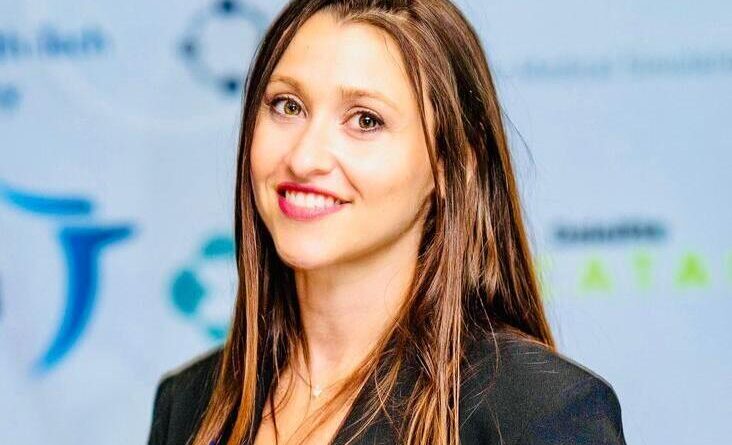Can we talk? LIV’s GenAI makes vulnerable people open | CTech
Since October 7, the increase in demand for mental health care in Israel as well as the shortage of mental health workers has caused a major disruption in the system. LIV, a new AI-based platform, developed by Sheba Medical Center, ARC Innovation Center, Microsoft, and KPMG, facilitates access to mental health care by enhancing the performance of mental health practitioners, significantly reducing treatment time.
The concept of LIV began in 2021, during the Covid-19 pandemic, when the global mental health crisis worsened. Iris Shtein, who at that time was the Director of the Department of Long-Term Care of Sheba, in collaboration with the Deputy Director of the Psychiatric Department, Dr. Asaf Caspi and Prof. Mark Weiser, Head of the Department of Psychiatry See, for the effort. finding a solution to simplify the initial diagnostic process, help overburdened health services and enhance patient care with advanced technology.
2 Check out the gallery


Iris Stein
(Photo: Mentally Ltd )
According to Shtein, because the technology “wasn’t there yet” in 2021, LIV was stopped and revived only after the tragic events of October 7. ” Shtein, a native of southern Israel who served in Gaza as part of an IDF medical unit, told CTech in an interview. “But then I realized that this was a historic moment and opportunity. I immediately met Dr. Caspi, Dr. Daniel Cohen, and Prof. Weiser to revive the LIV project again. In my role at that time as the Director of strategic partnerships at the ARC Innovation Center of Sheba I had collaborations with Microsoft and when we approached them, through Microsoft Israel, they immediately agreed to work together on this project. After just two months, we (Sheba, Microsoft and KPMG, who were also on board) had our first visualization study and the first version of LIV was ready.
The technology used by LIV is useful for people with PTSD, depression, anxiety and other mental health issues. Preliminary test results have shown that LIV has the ability to outperform human psychiatrists in some areas. For example, the Department of Psychiatry in Sheba, faced with increasing cases of PTSD due to ongoing conflicts, found LIV to be very valuable. The platform offers personalized interactions and practical analysis, to help manage the process of mental health needs.
2 Check out the gallery


A screenshot of the LIV platform
(Mentally Ltd )
“Think of LIV as a way to diagnose mental illness for the “softness” of the mind, which 90% of the population either deals with or doesn’t know about. First of all, it gives you someone to talk to, to share your concerns, and who will provide help and support in the first phase of the assessment. ”
LIV is a chat platform, a chat interface (looks similar to WhatsApp Web) using voice and text chat. You can choose to use LIV with or without an avatar (LIV is a woman, Shtein says proudly), tailoring the experience to each user’s needs. Using DSM-5 diagnostic criteria and adhering to the highest standards of responsible AI, LIV helps mental health professionals diagnose and manage conditions. LIV is currently available in Hebrew and English, but there is a need for additional languages, including Arabic, Spanish, Portuguese and more. “It takes time as we have to adapt each language to the local language, dialect and work with linguists.” Shtein explains.
Is LIV replacing real professionals?
“No,” says Stein firmly. “We don’t replace human doctors, but we help them. LIV works as a support system for making an initial medical diagnosis. It also saves a lot of time.”
Are there real human doctors standing by, supporting LIV?
“It is not necessary to have a real human doctor for the LIV meeting, but the information provided will always be connected to the person in the loop because LIV is not an independent platform. However, if If someone shows that they may harm themselves or someone else or does not respond to LIV’s questions, an alert will be issued immediately to a human expert.
Who will have access to LIV?
“We are working with medical organizations, HMOs, and now even Israeli government agencies, who get products from the user and can choose to move the patient through different journeys, to put patients first, to understand which treatment can work well for patients. Users can use LIV at home, but only through the medical organization. Consider all people who can use LIV at any time slow to check people”.
How accurate is LIV in testing?
“The accuracy of the first diagnosis given by LIV was 94% correct, but in some cases it was even higher than a real psychiatrist. It was better to choose medication, which is logical because LIV is connected to the most developed articles, and it was better when choosing cases as far as severity: light, moderate, or strong. And in some cases, our users said that LIV is more compassionate than a psychiatrist.”
What does LIV mean for Israel, after October 7?
“There are many requests in Israel. For example, an entire group of people from a kibbutz that was evacuated because of the war can be examined at the same time. Israel cannot provide a mental health worker immediately for everyone and not everyone needs to see a psychiatrist, or at least not right away . With LIV they don’t have to wait weeks, or months, to start the review process. We can take the limited staff we have now and manage them more effectively. ”
Are people comfortable sharing their problems with LIV?
Shtein says: “That’s another thing that really surprised us. “We thought that young people from the age of 12 and above, who tend to be more tech-savvy, would feel comfortable using LIV, but for adults, they are not faced with a choice between talking and human or AI, most of them can choose human. But these days, with the great need for mental health care, but the lack of available doctors, what we found is that adults, in fact all users, share more with LIV, for example about their drug abuse problems, than they would with someone on the other side with LIV they don’t feel threatened or judged.”
What does the future hold for LIV?
“I am happy to share that LIV will be the first company from the ARC incubator (Sheba Innovation Platform). I will soon be leaving Sheba to become the founder and CEO of Mentaily and LIV will be the company’s first commercial product. It will still be operated by medical centers, first responders, and HMOs, but under our new company. Sheba will continue to support it (along with Microsoft) as part of the Sheba Foundation. Prof. Mark Weiser of Sheba, Dr. Asaf Caspi, Dr. Daniel Cohen and I are co-creators of LIV, so we’ll always be very connected to Sheba.
“As for the sectors that we hope to focus on in the future, I can mention three: PTSD, youth (12,000 youth removed since Oct. 7), and women’s mental health ( including menopause, postpartum depression, depression in women undergoing IVF). treatments).”
Will it remain an Israeli company?
“Indeed. We are proud Israelis. This is Israel’s story of perseverance to take the crisis we have experienced since October 7 and create something that affects the whole world. Israel is the best testing ground for our product. But in the first year we are focusing on Israel. ”
Your daughter is also named Liv, so they are both of your children?
“Of course,” Shtein says with a laugh. “They are both my children, and I love them both. Worrying about LIV keeps me up at night more than my real daughter.”
#talk #LIVs #GenAI #vulnerable #people #open #CTech
